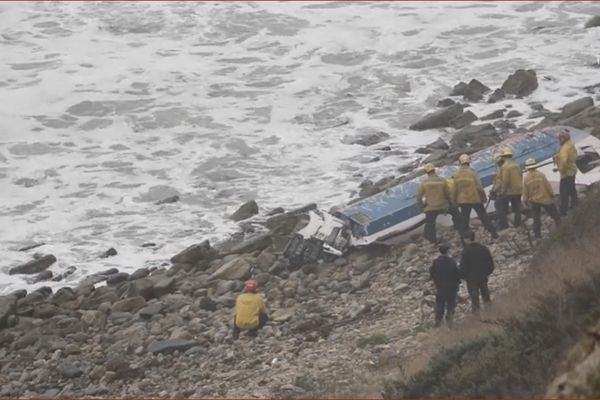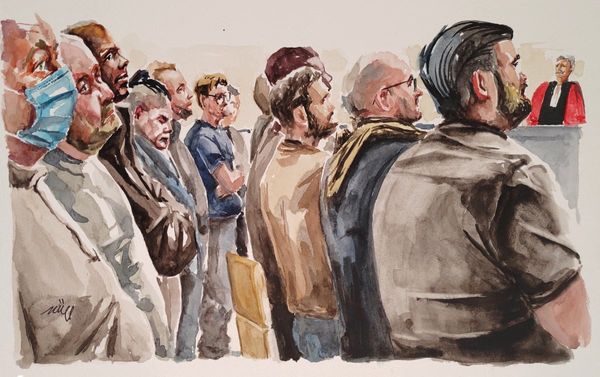
A surge in immigration, concerns over asylum seekers, surging rents and a decline in housing construction, high inflation, worker shortages, pressure from business to further open borders, and the opposition promising to cut immigration significantly — all make for tough political times for the government.
Except that’s not Australia — it’s the United Kingdom, where the walking dead Tory government is bearing the brunt of the immensely complex policy dilemma of immigration while inflation is high and the workforce is shrinking. The political pain for the Tories is particularly acute because one of the supposed attractions of Brexit was the restoration of British control over its borders, enabling it to cut off the flow of EU citizens into the UK. But the decline in EU immigration has been more than offset by a massive increase in non-EU immigration since the pandemic.
Ukrainian refugees and Hong Kong people fleeing the Chinese regime crackdown make up a third of the recent surge in UK immigration. But the rest comprises familiar factors to Australians: foreign students and temporary workers.
Over in the Netherlands, veteran Islamophobe Geert Wilders has achieved a remarkable political comeback, with a shift away from direct attacks on Muslims to targeting immigration and housing. In Italy Prime Minister Giorgia Meloni, who has failed to stem a flow of illegal immigrants across the Mediterranean, signed an agreement with Albania — similar to the Tories’ deal with Rwanda recently struck down by the courts — allowing for asylum seekers to be dispatched to a third country.
That comes as the EU considers a significant hardening of its border policy to show voters it is serious about retaining control of migration. In Dublin, an attack on a preschool by an immigrant last week, which saw several children and two adults stabbed (and which a Brazilian immigrant helped to stop), was used by far-right groups to provoke a night of rioting in the city.
There’s a well-established link between perceptions of economic insecurity and hostility to immigration — rather than economic conditions per se (see for example here, here and here). Traditionally, unemployment indicators have been a useful proxy for economic insecurity, but in a world with a shrinking workforce, that may no longer be so useful. At the moment, Western economies are dominated by low unemployment, high inflation (particularly around energy prices), and high (by recent levels) interest rates, creating perceptions of greater economic insecurity even for those with relatively safe jobs.
The right often promises to crack down on borders, but its record is poor: the Tories post-Brexit; Meloni’s inability to halt illegal migrants crossing the Mediterranean, Peter Dutton’s loss of control of borders to criminals and exploitive employers while presiding over a dramatic increase in temporary migration. But what right-wing parties are good at is convincing voters they are tough on border security, understanding that concerns about high immigration are separate from perceptions of control of immigration.
John Howard knew this, and was able to preside over a steep, big business-friendly rise in immigration as prime minister while proudly boasting of his strong border security credentials — indeed, one of the factors Labor was able to exploit in the 2007 election was not merely rising inflation that led the Reserve Bank to lift interest rates, but concerns about insufficient housing supply amid high migration.
And while Dutton’s own border security record is poor, he’ll be aware that perceptions of Labor weakness on border security born during the Howard era linger and will be more prominent in voters’ minds than the minutiae of his failings as minister. He’s also spoken of his interest in shifting away from the Liberals’ traditional big business allies, possibly giving him more freedom to pursue a smaller immigration target, to the undoubted chagrin of employers who have long relied on temporary migration to force wages down.
And in Australia, the same combination of inflation, high rents and high interest rates are creating extra economic insecurity (the result of policies championed by the Coalition, but that nuance will be missed), all exacerbated by a building slowdown, one-off factors driving temporary migration through the roof, and right-wingers eager to exploit the issue. The High Court’s decision to end indefinite immigration detention will stand in for anxiety over asylum seekers, thereby replicating the conditions producing an immigration backlash elsewhere.
Normally immigration does not — despite the intense media interest — shift votes, but it can when it’s linked not merely to border security but to economic issues. The Albanese government has begun the work of repairing the damage to border security caused during the Coalition years and has made some tweaks to temporary migration, but it has failed to get control of the issue.
In that regard, it is missing Kristina Keneally, who, whatever her other faults, effectively made high temporary immigration and border security an issue while in opposition, including upsetting immigration fans within the ALP by calling for lower temporary migration.
If Labor can’t get control of the issue and nullify the traditional strength of the right on the issue, it leaves Dutton with a potent weapon to use against it. The times will suit him. There’s no guarantee that a government with such a slim majority will automatically be given another term by an electorate worried about their economic position.
Does Labor need to be tougher on immigration? Readers, we want to hear from you — especially while our comments are closed due to our website upgrade. Send us your thoughts on this article to letters@crikey.com.au. Please include your full name to be considered for publication. We reserve the right to edit for length and clarity.







